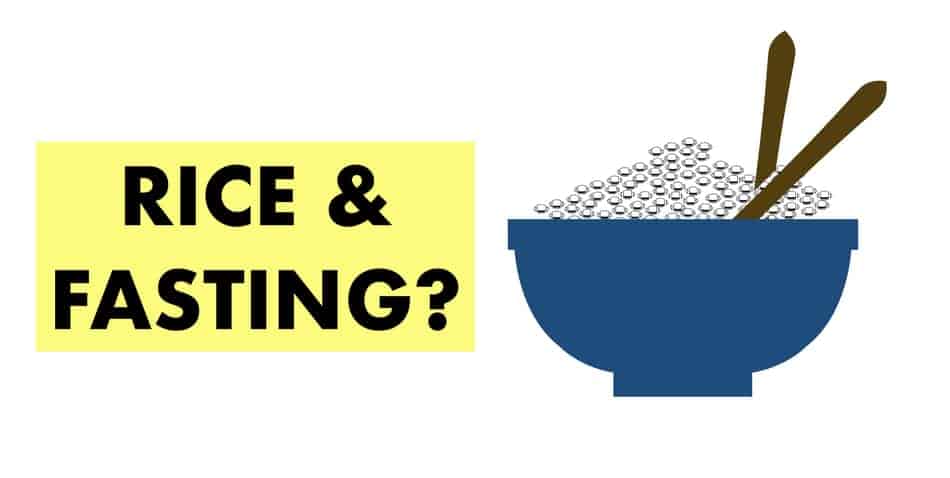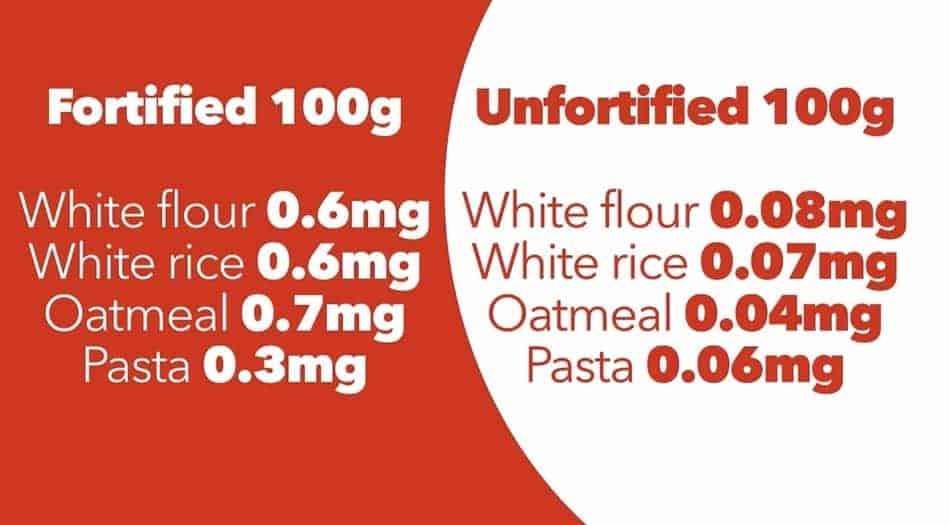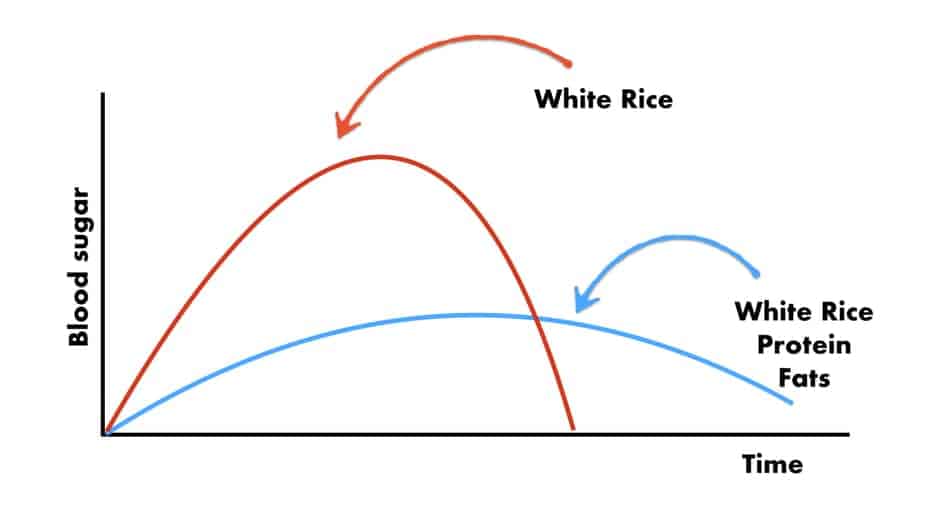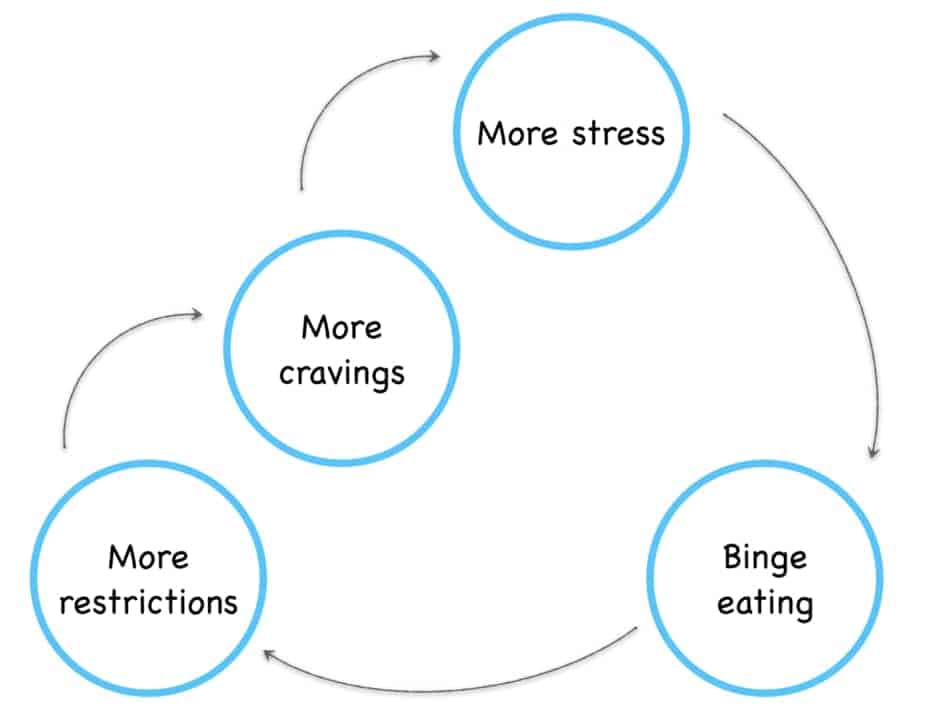If you are doing intermittent fasting and like me you love rice, then you probably wondering can you eat rice after fating.
You can eat rice after fasting because it’s high satiety food. Rice has a low glycemic index and can spike insulin, however, nobody is eating rice on its own. Therefore, adding proteins not only leads to lower insulin levels but also will affect further delay the return of hunger.
Plus, rice has a significantly high gastric emptying rate, which means it leaves the stomach faster and moves towards the intestine which helps with digestion and peristaltic mobility (source).

Does White Rice Or Brown Rice Digest Faster?
White rice digest faster than brown rice because it’s stripped from the bran. Due to the harvesting and milling process, the outer layer of white rice is removed. Bran in the brown rice inhibits the absorption of moisture and stomach acid to the grain, which decreases its degradation.
This means, thanks to the outer layer, brown rice can stay in the stomach longer and delay its breakdown (source). But it doesn’t mean brown rice is better. Yes, it has more minerals that are in the bran, however, the concentration of these nutrients and bioactive compounds vary depending on rice variety, origin, and post-harvest methods.
It also has phytic acid that chelates with minerals and inhibits their absorption (source). Plus, it doesn’t play well with enzymes that breakdown proteins and starches, so it makes more difficult to digest.
On the other hand, due to the process of fortification, white rice is enriched with iron, zinc, folic acid, and other B vitamins. In fact, in East Asian countries there used to be a big problem with chronic thiamine deficiency, and it’s a manifestation in beriberi disease. Thiamine, which is mainly present in the husk of rice, was stripped during the milling and harvesting process.
Thiamine (Vitamin B1) levels

But thanks to the fortification program that started worldwide in the 1930s, now the majority of white rice is enriched, so the values of minerals and nutrients are high.
You may say that white rice has less fiber. In fact, brown rice has 2 grams of fiber per half-cup serving, which is less than half of the apple.
Can You Eat White Rice On Intermittent Fasting?
You can eat white rice on intermittent fasting because it has high satiety, so you will feel less hungry. It also improves digestion thanks to and is a good energy source. Apart from that, white rice is gluten-free, which is a great alternative for people that cannot eat gluten.
Despite its “bad” reputation, there are several benefits of eating white rice, even while you’re doing intermittent fasting.
Because it doesn’t have the bran, hydrolysis of white rice (releasing the maltose from the starch) is much quicker.
This means sugar in your blood will spike faster, which then will trigger the pancreas to produce insulin to capture all that sugar and push it away from the blood.
But once you add extra proteins, fats or vegetables, this process immediately slows down (source).
So it makes sense, because the white race, despite being a staple food for more than half of the world’s population, and is rarely eaten by itself.
So indeed, white rice it’s been associated with negative effects on plasma glucose levels which can lead to CVD, but assuming that you will combine white rice with some other type of food, there is nothing to worry about.

How Much Rice Should I Eat A Day To Lose Weight?
You can eat rice even 2-3 times a day at 50g each to lose weight. Rice is low-calorie dense food, which means it will keep you full with just a small amount so it won’t make a significant impact on the weight. The most impact will have the foods that you add to rice.
In some Asian countries people eat rice three time a day and doesn’t have any major health problems. But that’s just a correlation, and not causation. There can be a number of factors why people in Asian countries doesn’t have heath issues, and it may got nothing to do with eating rice.
It is usually the eating habits and overall quantity of food consumed.
For instance, Okinawans in Japan have the longest life expectancy in the world, despite eating rice 2-3 times a day (source). That is due to the several eating traditions.
- Hara Hachi bu – Hara Hachi bu is a cultural habit, which means eat until you’re 80% full. Before each meal, there is a custom (almost like a mantra) that reminds Okinawans to stop eating when they are no longer hungry.
- Eating from the small plates – Okinawans consistently eat from small plates. This is a well-established method that is called a sensory contrast illusion. It’s a visual perception of food appearing bigger just because of the plate size difference (source).
- Stress management – according to academic literature, older Okinawans do not go to fitness gyms or do jogging. Instead, they have strong social support, practice respiration, tai-chi, karate, kendo, dancing, and walk daily several miles (source).
Those are just a handful of strategies that help with lowering food intake and increasing caloric expenditure in a simplified way, without relying on fitness trackers or numerically oriented food journals.
What Will Happen If I Stop Eating Rice?
If you stop eating rice you may notice changes in your energy levels, digestion, and satiety, especially if you’re used to eating rice a couple of times a day. Rice is a good source of fast absorptive carbohydrates with a high gastric emptying rate so it provides almost instant energy.
So for people who are active, or are doing some labor-intense work, stop eating rice in the long term maybe not the best idea. Also, there is no much difference between eating rice, potatoes, bread, or pasta when it comes to calories, but rice and potatoes have the highest satiety rate.
This means you will feel fuller for longer. What makes food filling is its satiety signals. How fast hormone ghrelin (the hunger hormone) goes away and leptin (fullness hormone) comes in. Ghrelin requires something which is called postgastric feedback (a signal that we eat), which is being regulated through insulin (source).
In other words, high protein and high carbohydrate meals, make you fuller quicker.
Will I Lose Weight If I Stop Eating Rice?
You will lose weight if you stop eating rice as long as you reduce your total caloric intake. This means you can still eat rice and lose weight at the same time. Weight loss is triggered by caloric restriction, regardless of what type of foods you eat.
In other words, its it doesn’t matter which food you choose to reduce. Your goal should be finding the foods you like and reduce the total amount, not specific food item.
People have a hard time reducing the calories they eat because eating less is very subjective. It’s hard to define eating less. Where eliminating rice, carbs, meat, or fat from the diet is more specific and actionable. You know exactly what to do.
But in the long term, it fails miserably. Because the longer you restrict yourself from foods that you like, you will get more cravings for that food and stress. Until one day you break down. And you start the cycle from the beginning.

That’s why it’s better to reduce total amount of food.
Can I Live Without Eating Rice?
You can live without eating rice. Cultures like African Maasai, Arctic Inuit, Polynesian Pukapuka, or Tokelau near New Zealand are all eating diets significantly high in fat and animal foods, with little vegetables. However, they are all associated with a low rate of metabolic health problems.
So despite having a radically different diet, compared to the western world, vascular disease is uncommon (source).
In Conclusion
Rice is a staple food for many cultures and it’s a base for a variety of foods. You can eat rice after intermittent fasting as long as you eat it with protein-rich foods. You can also try to experiment with Okinawans’ solution for eating less food by stop eating when you’re no longer hungry, eat slowly, eat from smaller plates and incorporate some stress reduction methods.
This way you can still enjoy your rice and have a great results from intermittent fasting.
